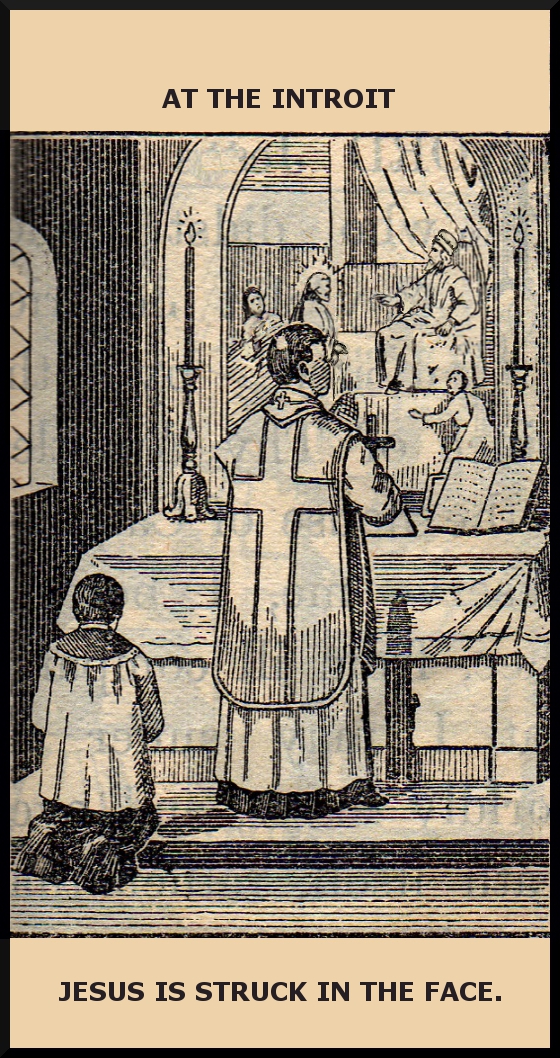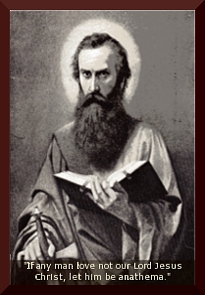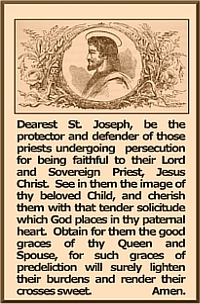 The word “introit” derives from the Latin introitus, meaning “entrance”. Properly speaking, it marks the commencement of the actual Sacrifice. The priest reads the Introit in the Missal even when it is also sung by a choir.
The word “introit” derives from the Latin introitus, meaning “entrance”. Properly speaking, it marks the commencement of the actual Sacrifice. The priest reads the Introit in the Missal even when it is also sung by a choir.
We call to mind that Our Lord was brought before the judgment seat in the palace of the high-priest Annas, where, in the opinion of religious writers, Annas rendered the ‘official’ condemnation of the innocent Lamb. Sending Him on to his son-in-law, Caiaphas, was a mere formality. Scripture records that before Annas, our Lord suffered the pain and indignity of a blow to His Sacred Face by one of the servants. St. Alphonsus wonders in astonishment as to how the truth uttered in meekness by Christ is worthy of such painful humiliation, and he remarks, “The worthless high-priest, instead of reproving the insolence of this audacious fellow, praises him, or at least, by signs approves.” Our Lord accepted this painful affront in expiation for the countless sins of all of us, the children of Adam, who until the end of time, continue to strike Him with every sin.
We pray: “Lord Jesus Christ, who wouldst be brought bound to Annas, as a malefactor, by an armed band of wicked men; give me grace that by no evil spirit, or evil doers, I may be ever drawn to sin, but by Thy good Spirit led to the fulfilling of Thy divine will. Amen.
As the Mass proceeds we intensify our focus on the Person of Our Lord so that our interior disposition may become something like that of our Blessed Mother’s as she accompanied her Son to Calvary.
In the N.O. the Mass starts with the Entrance Hymn since the preparatory prayers at the foot of the altar were eliminated. From the GIRM: “Its purpose [ entrance hymn, or chant] is to open the celebration, foster the unity of those who have been gathered, turn their thoughts to the mystery of the celebration, and accompany the procession. If there is no singing at the Entrance, the antiphon in the Missal is recited either by the faithful, or by some of them, or by a lector; otherwise, it is recited by the priest himself, who may even adapt it as an introductory explanation.”
The Introit of the TLM – being an abbreviated Psalm – is completely Christocentric. The Psalms, which encompass every sentiment of the pious heart, were used by Our Lord Himself when He addressed His Father. One wonders what Psalm our dear Lord must have been praying at this moment of His Passion!



